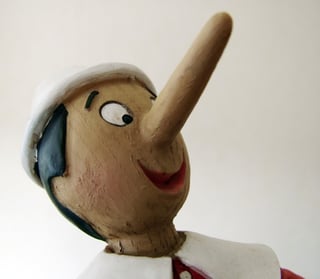This is the sixth post of a seven-part series on "Bad Assumptions" that salespeople make during the sales process.
 A college friend of mine used a technique when he wanted to end relationships with people he’d been dating for awhile. His objective was to end things and avoid discussing why it was over and whose fault it was. The phrase he used was: “I’m just not good enough for you.” In doing so he took responsibility for ending relationships without saying there was someone new (there usually was). The underlying issue was that he wasn’t worthy.
A college friend of mine used a technique when he wanted to end relationships with people he’d been dating for awhile. His objective was to end things and avoid discussing why it was over and whose fault it was. The phrase he used was: “I’m just not good enough for you.” In doing so he took responsibility for ending relationships without saying there was someone new (there usually was). The underlying issue was that he wasn’t worthy.
As a sales manager, I found loss reports to be virtually worthless. Similar to my college friend, buyers want to deliver bad news quickly and limit or eliminate explanations. How often do you think all losing vendors are told they came in second? With few exceptions, the reasons cited in loss reports were price or product. In trying to learn from our losses, I instituted two (2) new rules:
- Unless a buyer gave the seller an opportunity to meet a price point that management couldn’t support, price could not be used as a reason for a loss.
- 30 days into buying cycles sellers lost the ability to blame product. If our offering wasn’t a fit, then the opportunity hadn’t been adequately qualified.
My belief is that when pricing and offerings are fairly equal, the better salesperson wins the lion’s share. The elephant in the room is that the most common reason for losses is that sellers get outsold.
In trying to get more usable information about losses, my suggestion is that losing vendors wait a few months and have someone other than the salesperson contact the person believed to be the decision maker. Explain that the company delayed making contact because it isn’t an attempt to change his/her mind. Rather, you’re trying to improve the company’s selling efforts and would appreciate it if the buyer could briefly explain:
o The major reasons for choosing the winning vendor.
o Perceived deficiencies in the losing vendor’s offering or support.
o Aspects of the selling effort that could have been done more effectively.
Going the distance and losing is the worst possible scenario for vendors and sellers. Having invested time and effort, actionable loss reports can salvage some benefit. I’d also suggest that after a significant win you may want to interview the Key Players to gain insights into the reasons for the win.


 A college friend of mine used a technique when he wanted to end relationships with people he’d been dating for awhile. His objective was to end things and avoid discussing why it was over and whose fault it was. The phrase he used was: “I’m just not good enough for you.” In doing so he took responsibility for ending relationships without saying there was someone new (there usually was). The underlying issue was that he wasn’t worthy.
A college friend of mine used a technique when he wanted to end relationships with people he’d been dating for awhile. His objective was to end things and avoid discussing why it was over and whose fault it was. The phrase he used was: “I’m just not good enough for you.” In doing so he took responsibility for ending relationships without saying there was someone new (there usually was). The underlying issue was that he wasn’t worthy.

